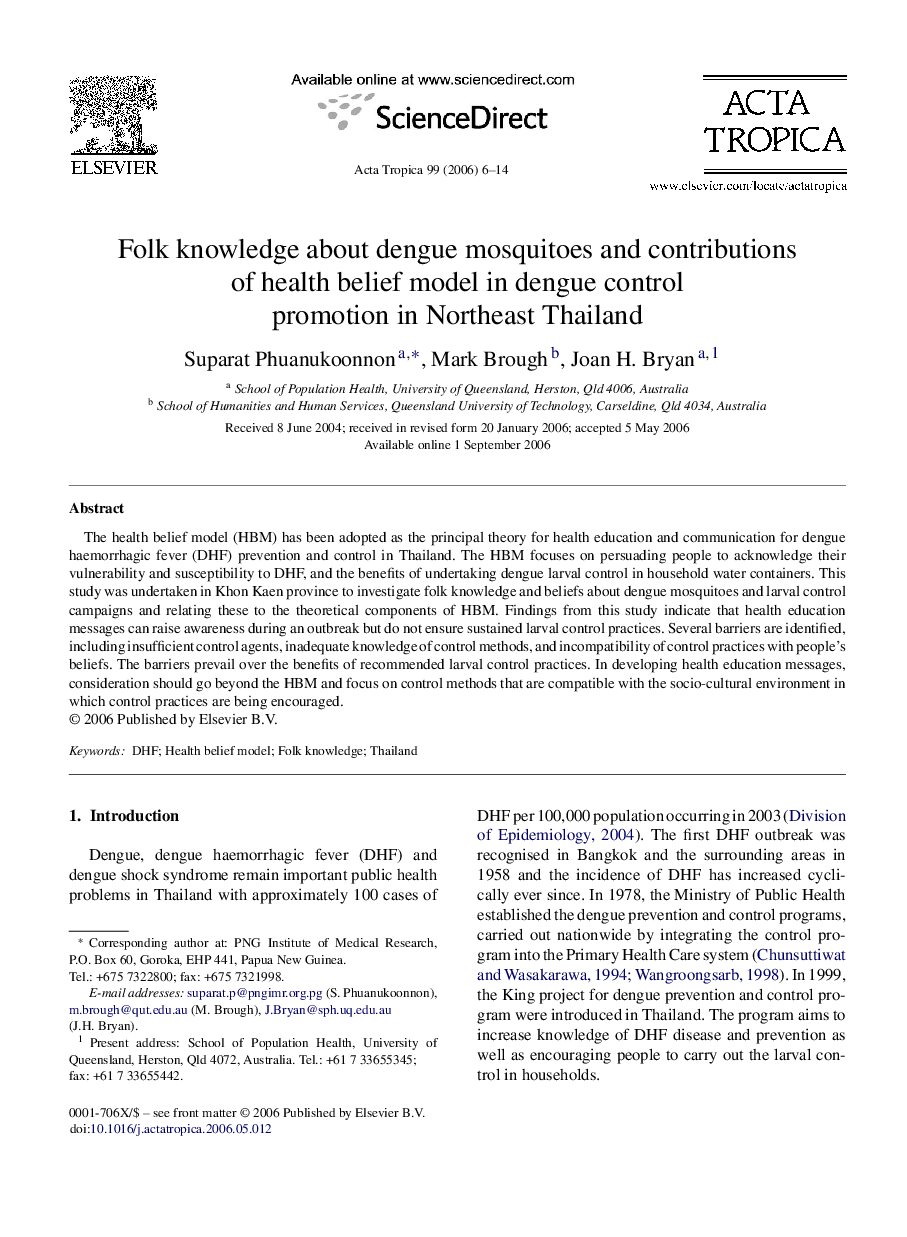| Article ID | Journal | Published Year | Pages | File Type |
|---|---|---|---|---|
| 3394829 | Acta Tropica | 2006 | 9 Pages |
The health belief model (HBM) has been adopted as the principal theory for health education and communication for dengue haemorrhagic fever (DHF) prevention and control in Thailand. The HBM focuses on persuading people to acknowledge their vulnerability and susceptibility to DHF, and the benefits of undertaking dengue larval control in household water containers. This study was undertaken in Khon Kaen province to investigate folk knowledge and beliefs about dengue mosquitoes and larval control campaigns and relating these to the theoretical components of HBM. Findings from this study indicate that health education messages can raise awareness during an outbreak but do not ensure sustained larval control practices. Several barriers are identified, including insufficient control agents, inadequate knowledge of control methods, and incompatibility of control practices with people's beliefs. The barriers prevail over the benefits of recommended larval control practices. In developing health education messages, consideration should go beyond the HBM and focus on control methods that are compatible with the socio-cultural environment in which control practices are being encouraged.
